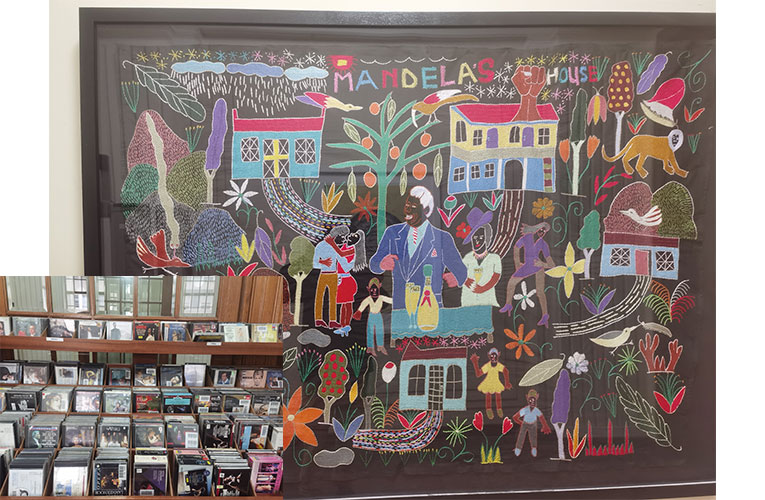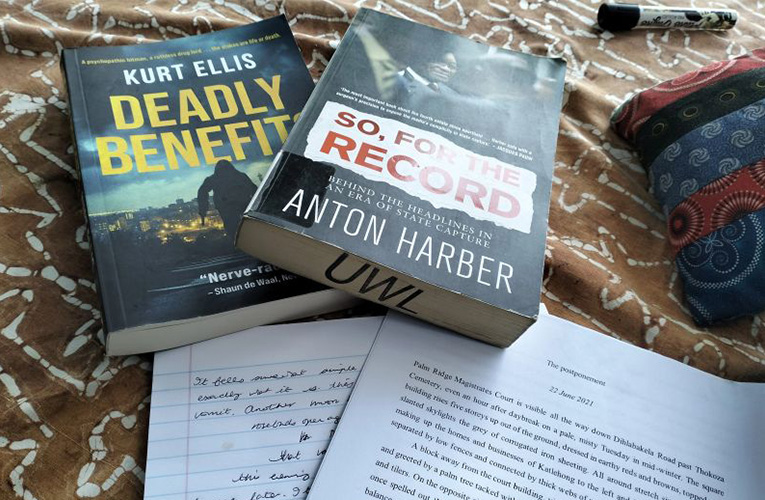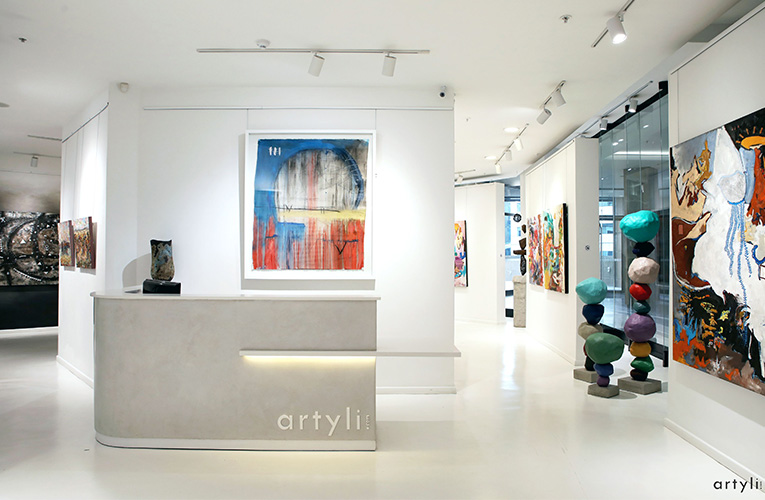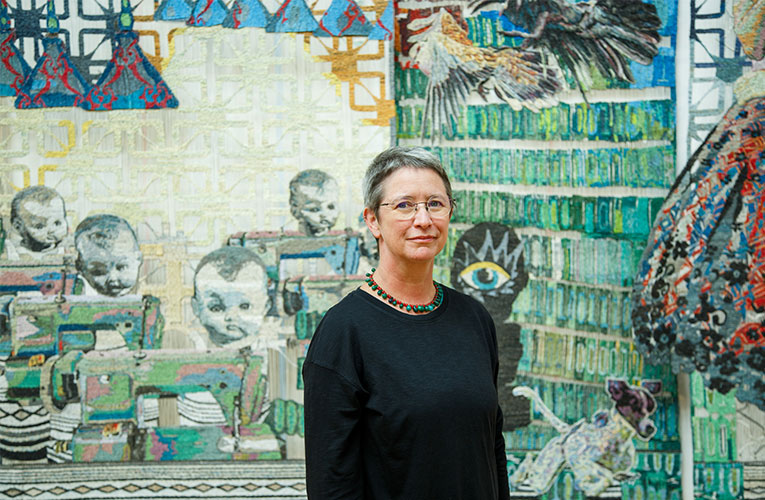The Cry of Winnie Mandela forces you to confront own judgemental posture on others when it comes to issues of morals
By Edward Tsumele, CITYLIFE/ARTS Editor
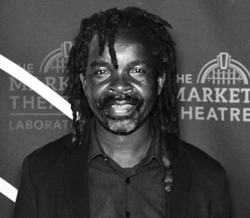
I personally was not surprised with the news that the current Market Theatre production The Cry of Winnie Mandela was extended to run till April 28, 2024. Originally it was scheduled to run till April 21, 2024. I mean this is a story that has so much to offer with regards to the country’s political history, issues of personal desires against societal expectations. It is also a story that makes the audience to think hard about how perhaps we are too quick to judge others, expecting them to have some kind of higher moral standards more than those we ourselves uphold.
You will deal with these conflicting emotions and more watching The Cry of Winnie Mandela on stage. I watched it recently, and found myself questioning my own judgemental posture when it comes to issues of morality and I asked myself whether that is fair. Issues of morality are personal and are informed by someone’s personal circumstances and experiences in life. Your background, such as your upbringing comes to pl;ay when you judge what is acceptable behaviour and choices in life as there no rules, such as those governing what is a crime and what is not.
In other words, The Cry of Winnie Mandela, will get you to look at your own judgmental attitude when it comes to the decisions others make for their own sake. It is a play that instead of demonising the women who cannot wait for their husbands forever, gives an audience member a perspective of the women waiting for their husbands that may not come back. Worse may come back and not feel in love with the wives anymore. For that is a possibility because the more people are apart, they tend to drift apart. Especially when it comes to matters of the heart.
Watching this production, which does not only put a spotlight on the decision that the late Winnie Mandela made in the 1990s, when Nelson Mandela had just come out of prison after serving 27 years, and that is to have an affair with a now well known lawyer, an event that put society into turmoil. This is because people expected her to live a life that was imbued with high moral standards, simply because she was married to a global icon and freedom fighter who was soon to become the President of a democratic South Africa.
But she chose a different route and not the one society had chosen for her. This play shows depicts Winnie as an ordinary person, an ordinary women who was not immune to certain decisions made in fact by several women who found themselves in the position that she did.
I like the fact that the director of this play and the script writer for a substantial portion of the play make the audience see Winnie’s reason for making that choice, through the eyes of other women who also faced the same dilemma that Winnie found herself in.
That is whether to wait or not to wait. The four characters of the waiting women, who waited for their husbands working in the mines of Johannesburg, decided eventually that they were going to have lovers instead of waiting indefinitely. But before you jump into judging them, wait for a moment. This is important because in some cases the very same husbands they had been waiting for, had new lovers wherever they worked in the cities, and in any case had neglected their wives back home in this process of isolation in a capitalist system that in fact did not cater for black workers to live with their wives in urban areas.
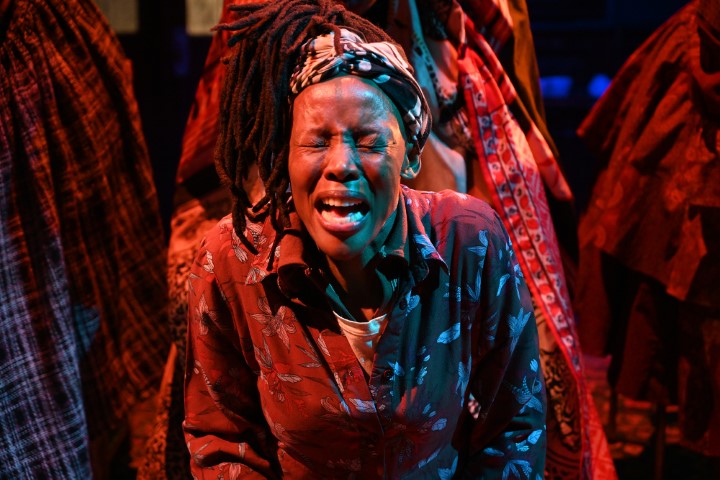
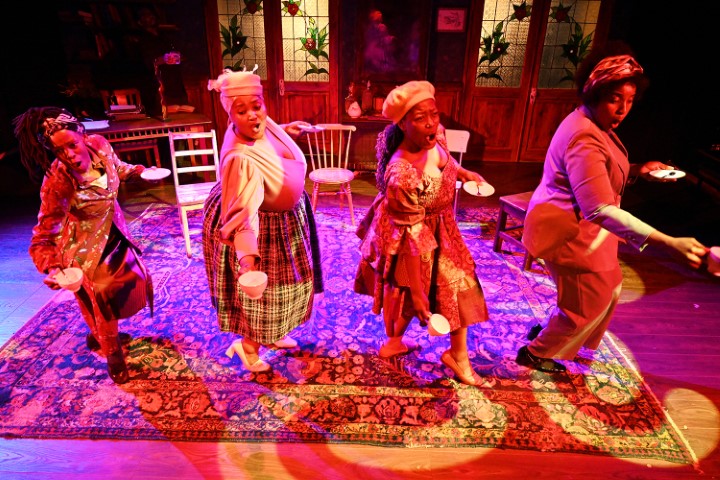
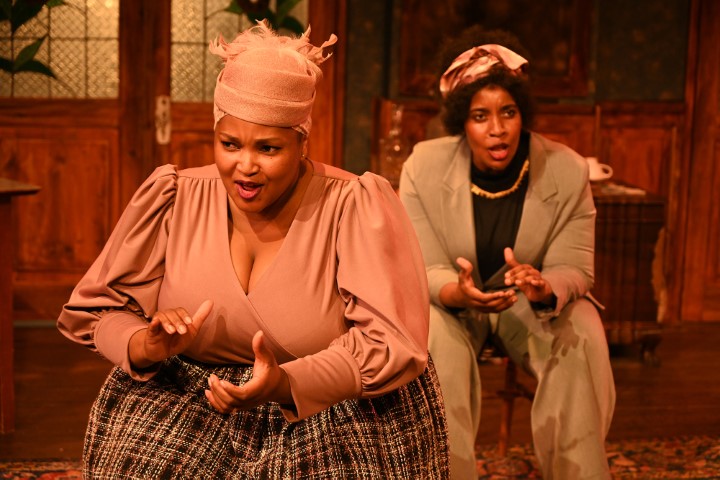
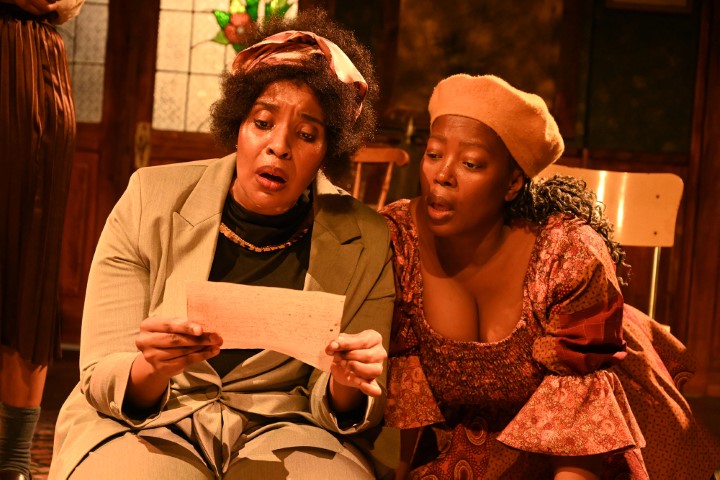
Now we can stand here and judge them harshly, but if you put yourself in their position, you will understand why they made the decisions that they did. In this production, Winnie and her controversial decision is read in the same way that those women’s stories are read.
Somehow that makes a viewer to have empathy with her in that challenging position. You do not necessarily have to agree with ther decision not to feel a romantic connection with a man she had been waiting for 27 long years, only to feel alienated from when he was eventually free.
Perhaps the question then becomes whether as society we tend to judge those that are famous and powerful differently from those who are ordinary for the same decisions they make when faced by circumstances of their personal lives, such as their personal desires, matters of the heart.
The only thing though that I felt did not work out to my expectations, is the fact that the character of Winnie struts onto the stage too late. By that time as audience members, who have either fallen in love or out of love with the characters that we have been watching to now warm up to the new character that is being introduced is asking for too much from us.
This role of the main character is performed by Nambitha Mpumlwana, who is actually a talented actor. But introducing her character in this way, too late, when we have already travelled a long distance with the other characters, does not do justice to either Mpumlwana as an actor or the story of Winnie in The Cry of Winnie Mandela. After all she is the central character in this play, and bringing her earlier would have given her an opportunity to illuminate more on the decision that Winnie made, which clearly divided society at the time.
After all this play is called The Cry of Winnie Mandela and not The Cry of the Four Women. And so why not make the play more about this character, with the other four characters playing supporting roles. I felt that as far as this omission is concerned, I was somehow robbed of the opportunity to get into the mind of the Winnie character, and seeing how far Mpumlwana, would explore this character around the situation she found herself in, which got the whole nation talking. And divided, when that letter was leaked to the tabloids and splashed all over the place.
However I like very much the idea of using TV and audio recordings of both Winnie and Mandela from the course of their much publicised divorce proceedings. Juxtaposing that with the drama on stage I found that to be superb as it gave perspectives of the dynamics at play at the time –that is the personal becoming enmeshed in the political dynamics of the time, creating a sensational story of the breakdown of a dream marriage in South Africa in which politics played no small part in its disintegration.
This play in a powerful way shades light into the life and times of the late political
activist and freedom fighter Winnie Madikizela Mandela while she served time in prison.
Waiting to be reconnected with her then imprisoned husband Nelson Mandela, but also the
lives of all South African women, who endured waiting for their husbands and living in
isolation during a difficult time in the history of this country.
This therefore makes this production, a theatrical piece that transports the audience
back into a particular time in the history of this country, in which the women folk of this
country were denied the intimacy and the company of their husbands due to the divisive
politics of the time. This production is a clear illustration of the example when the personal
becomes political, and the political becoming personal.
This is a challenging intersection of politics and personal lives a collision in which something must give. In this particular case, the personal did.
Therefore The Cry of Winnie Mandela is a compelling journey through history, emotion, and
the enduring strength of the female South African spirit. But it is also a play of betrayal of the personal.
Based on the popular novel by poet, novelist, and essayist Njabulo Ndebele, The Cry of
Winnie Mandela is a poignant theatrical production brought to life by The Market Theatre.
This thoughtful new play of resilience is adapted by Alex Burger and directed by the award-
winning MoMo Matsunyane who is the current Standard Bank Young Artist Winner for
Theatre.
And therefore through the sharp pen of Burger, who adapted this story for
the stage, and the directorial astuteness of MoMo Matsunyane, who is currently riding on
the crest of having been declared best thespian among young theatre talent in the country
through the Standard Bank Young Artist Award for theatre, and the insight of Prof. Njabulo
Ndebele into the lives of women in isolation, away from their husbands, audiences are given
a theatrical rollercoaster.
The Cry of Winnie Mandela, is a play you need to see before it ends its season, and who knows you may come out of the Barney Simon Theatre a little bit more sympathetic to those who make the decisions that those women in the play have made. Justsaying.
Creative team
Writer: Alex Burger (adapted from the novel of the same name by Njabulo S. Ndebele)
Director: MoMo Matsunyane
Lighting and Set Design: Wilhelm Disbergen
Costume Design: Onthatile Matshidiso
AV and Sound Design: Vangile Z. Mpumlwana
Cast
Rami Chuene as Mannete
Ayanda Sibisi as Delisiwe
Nambitha Mpumlwana as Winnie Mandela
Siyasanga Papu as Marara
Pulane Rampoana as Mamello
Les Nkosi as Prof Ndebele
Season: 30 March – 28 April 2024
Venue: Barney Simon Theatre, Market Theatre in Newtown




